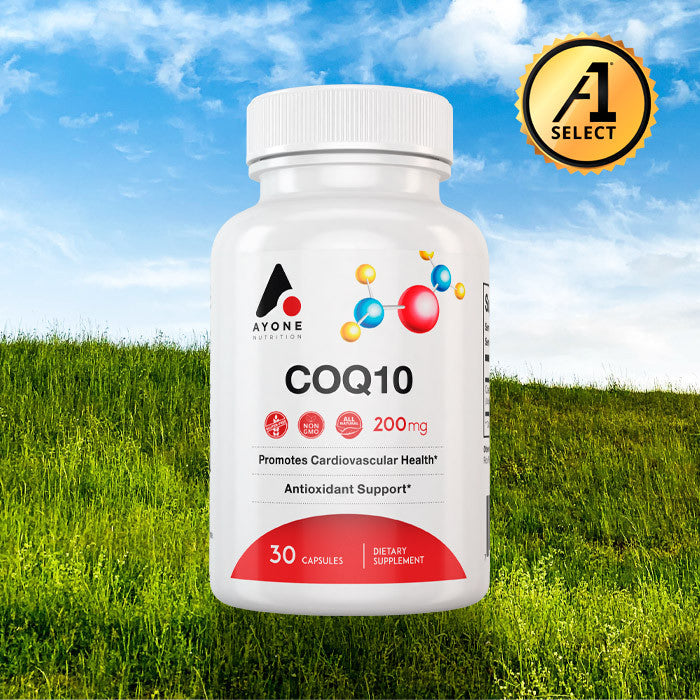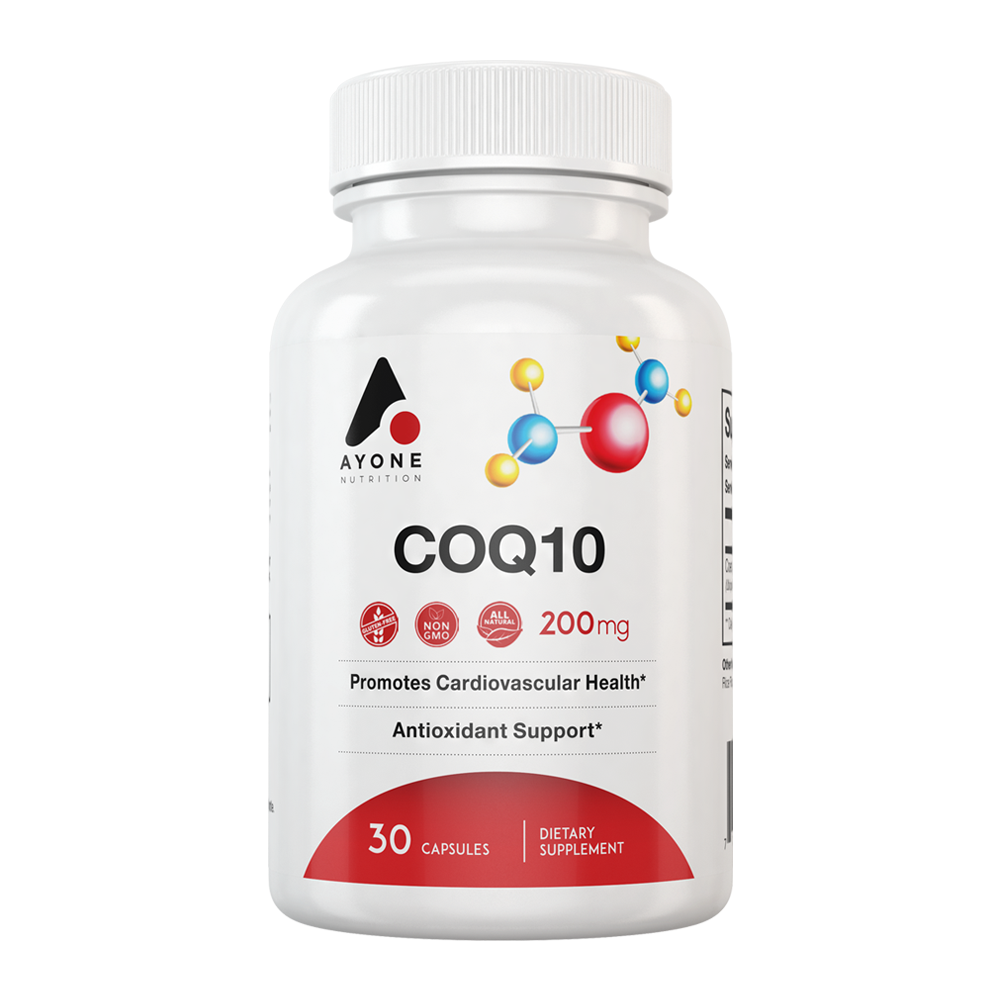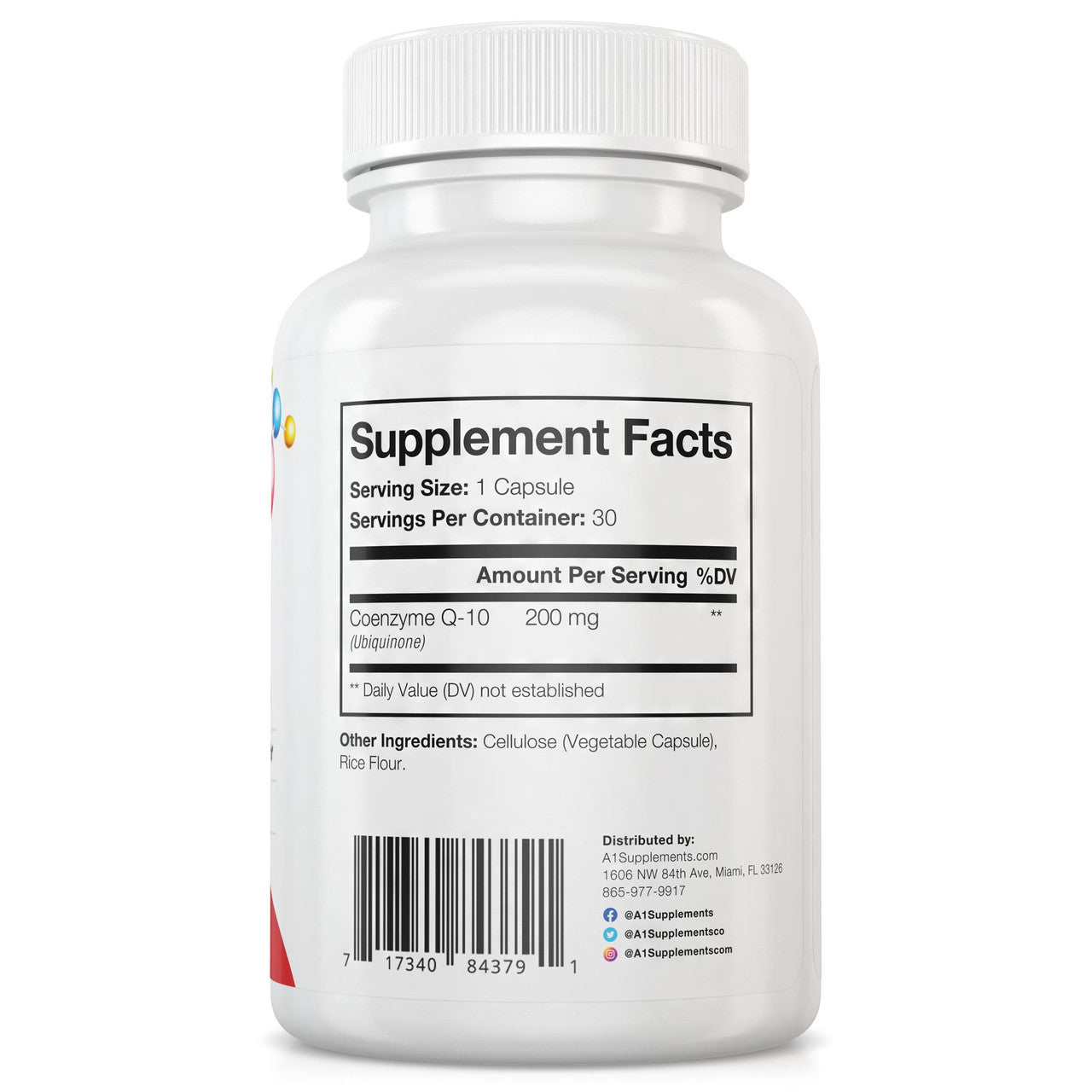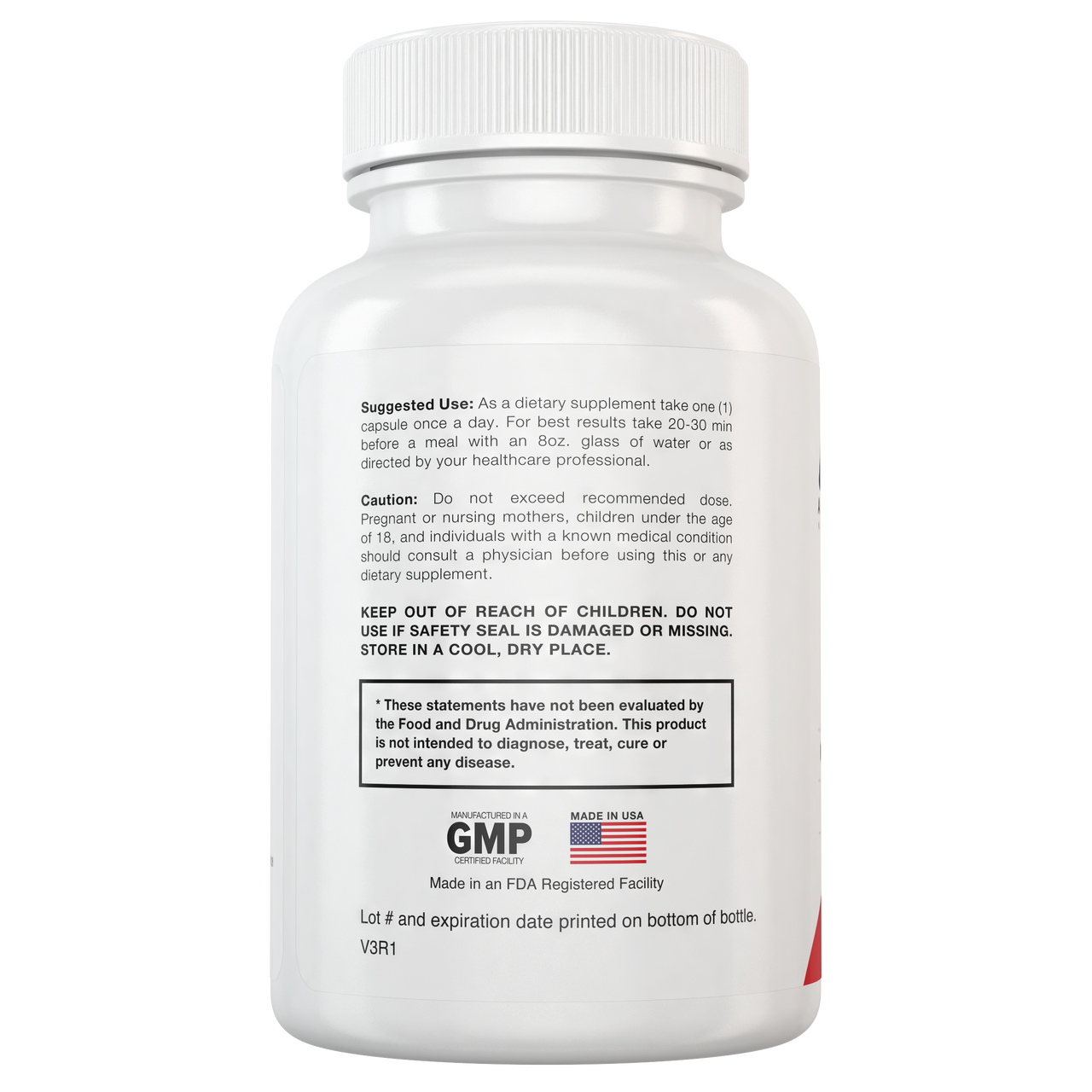Coenzyme Q-10 (also known as CoQ-10 or Ubiquinone) has caused much excitement in the scientific & medical communities...Learn more.
Since its discovery in beef tissue in 1957, Coenzyme Q-10 (also known as CoQ-10 or Ubiquinone) has caused much excitement in the scientific and medical communities, thanks to its possible therapeutic role in preventing and treating many serious health problems.
CoQ10 makes possible the production of adenosine triphosphate, the primary energy source of cells, and due to its antioxidant properties also helps prevent lipid peroxidation, which is the free radical damage caused by the oxidation of polyunsaturated fat. So vital is CoQ10 that the body manufactures it from the amino acid tyrosine, but levels of this fat-soluble nutrient decline with age and certain illnesses. It has been noted that when CoQ10 levels drop to 75% below normal death is the usual result.
What are food sources of CoQ10?
Fairly high amounts can be found in organ meats such as heart, liver and kidney, as well as beef, soy oil, sardines, mackerel, and peanuts. One pound of sardines contains approximately 30 mg of CoQ10. (The amounts used in clinical studies and medical therapies greatly exceed what can be obtained from diet alone.)
What is CoQ10 used for?
Since the mid-1970s Japanese doctors have used CoQ10 as a reliable, nontoxic therapy for congestive heart failure and high blood pressure. Some nutritionally oriented doctors in America also employ CoQ10 for such purposes as well, but this use remains controversial, since the Food and Drug Administration has not approved it to treat these illnesses.
Three studies suggest that CoQ10 supplements may play a role in reducing the frequency and severity of migraines, perhaps because brain tissue is metabolically very active and therefore has a high demand for substances that can boost production of adenosine triphosphate.
Doctors who administer CoQ10 to ill patients and test subjects often claim to observe an increase in oral health among those who have pre-existing gum conditions such as gingivitis and periodontal disease.
The widely used cancer drug Adriamycin often causes heart damage in those who receive it, perhaps because of free radical damage to the cardiac muscle. Some researchers and doctors believe that if CoQ10 is administered along with Adriamycin that such heart injuries can be minimized or even prevented altogether.
In one study, diabetics who received 200 mg per day of CoQ10 appeared to experience improvements in glycemic control.
Millions of Americans take statin drugs such as Zocor to lower their cholesterol, although many experience side effects such as muscle pain. Interestingly, both cholesterol and CoQ10 are synthesized in the body through the same chemical pathways, and for this reason use of statin drugs may also reduce CoQ10 levels, which could put patient health in jeopardy. Therefore many users of statin drugs also take CoQ10, often in amounts of 100 mg per day or greater, although no broad scientific consensus exists regarding the wisdom of such a strategy.
CoQ10 research in other areas also continues. These include the use of CoQ10 to improve immune function, as well as in the treatment of conditions such as breast cancer, muscular dystrophy, HIV/AIDS, Alzheimer ’s disease, and Parkinson ’s disease.
How is CoQ10 taken?
Absorption of CoQ10 is greatly enhanced if taken with a fatty or oily substance such as a natural nut butter. Little CoQ10 is absorbed if taken on an empty stomach or with a non-fat meal.
Some types of CoQ10 appear to be better absorbed, including softgels and the new Ubiquinol forms.
Typical CoQ10 dosages range from 100mg per day for healthy individuals to several hundred mg per day for those with serious health issues such as congestive heart failure.
Is CoQ10 safe?
No toxic side effects have been observed, although pregnant women and nursing mothers should take CoQ10 only under the care of a nutritionally knowledgeable physician.
How much CoQ10 should you take?
Since CoQ10 is made by the body, scientists do not consider it a vitamin, and no Recomended Daily Allowance exists for it. However, CoQ10 levels may be depleted by age, illness, and certain medications. Among those who do supplement with CoQ10, doses may range from 100mg to 300mg a day, and in exceptional cases sometimes more.
These statements have not been evaluated by the Food and Drug Administration. This product is not intended to diagnose, treat, cure, or prevent any disease.















